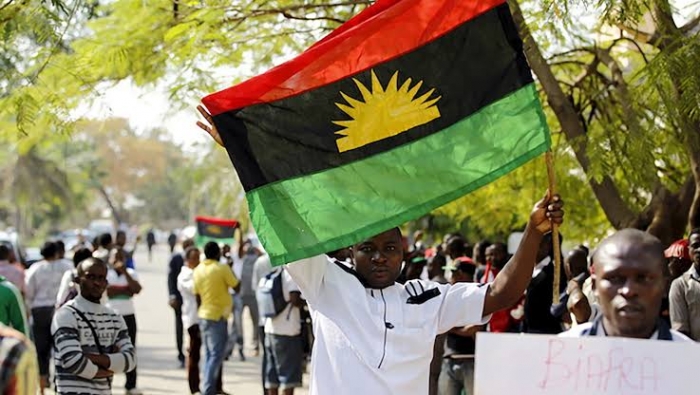Nigeria's southeast region has suffered devastating economic and human losses totaling N7.6 trillion ($4.79 billion) and over 700 deaths during four years of sit-at-home protests enforced by the banned separatist group Indigenous People of Biafra (IPOB), according to a new intelligence report.
The comprehensive study by SBM Intelligence, titled 'Four Years of Disruption', reveals how what began as a symbolic protest demanding the release of IPOB leader Nnamdi Kanu has evolved into a prolonged crisis marked by violence, economic collapse, and widespread fear across the predominantly Igbo region.
Economic Devastation Across Five States
The sit-at-home orders, which began in August 2021, have transformed Mondays into ghost days across Abia, Enugu, Imo, Ebonyi, and Anambra states. Streets remain empty and businesses shuttered, not merely from voluntary compliance but increasingly due to violent enforcement against those who attempt to defy the orders.
Micro-businesses have borne the heaviest burden, losing approximately N4.6 trillion annually, while transport operators forfeit between N10 billion and N13 billion every Monday when the shutdown is enforced. Major commercial centers, including Onitsha Main Market—one of Africa's largest trading hubs—have been repeatedly forced to close, resulting in massive transaction losses and financial strain for traders and consumers.
"The losses stem from widespread market closures, disrupted supply chains, and the inability of businesses, particularly SMEs, to operate effectively," the SBM report states. The impact spans both urban and rural areas, creating systemic disruptions to the region's economic foundation.
Rising Death Toll and Violence
The human cost has been equally staggering. SBM Intelligence documented 776 deaths and 332 violent incidents between 2021 and 2025, with Imo and Anambra states accounting for more than half of the fatalities. The deaths result from two primary sources: the killing of civilians who defied the stay-at-home orders and clashes between IPOB forces and Nigerian security personnel.
IPOB's armed wing, the Eastern Security Network (ESN), along with other criminal gangs claiming allegiance to the group, have been blamed for enforcing the orders through arson, kidnappings, looting, and targeted assassinations. These enforcement tactics have created what the report describes as "a climate of fear" throughout the region.
From Solidarity to Coercion
The sit-at-home protests initially launched as leverage to secure the release of Nnamdi Kanu, who faces terrorism charges in Nigeria's capital, Abuja. IPOB, which campaigns for the secession of the southeast and has been labeled a terrorist organization by Nigerian authorities, suspended the weekly protests shortly after their inception, citing a "direct order" from Kanu and limiting them to days when their leader would appear in court.
However, various armed groups claiming IPOB allegiance and internal factions have continued enforcing the weekly shutdowns, launching attacks on government facilities and individuals perceived as pro-government. While compliance rates were initially high at 82.61% in 2021, surveys now reveal that actual support has plummeted to just 29%, with most compliance driven by fear rather than solidarity.
Denials and Government Response
An IPOB spokesperson denied the group's responsibility for the deaths, claiming "those causing the killings are the kidnappers and criminals recruited by government to blackmail and demonize IPOB." The group has also denied responsibility for recent high-profile attacks, including a 2021 prison assault and the murder of over 30 travelers earlier this month, despite police accusations.
Some state governments have attempted to restore normalcy through various measures. Enugu Governor Peter Mbah imposed penalties for compliance with the sit-at-home orders, contributing to a tentative return to normal activities in his state. Similar crackdowns and enforcement measures have been implemented in other states like Ebonyi.
Historical Context and Ongoing Impact
The current crisis echoes the region's turbulent past, particularly the civil war that engulfed the former Biafra region in the late 1960s, which claimed over one million lives. The persistent sit-at-home protests represent the latest chapter in ongoing tensions over marginalization and self-determination in Nigeria's southeast.
"Initially rooted in legitimate grievances over marginalisation and the detention of Nnamdi Kanu, the movement has been hijacked by violence, criminality, and internal fragmentation, eroding public support and deepening instability," the SBM report concludes.
The four-year crisis has fundamentally disrupted education, governance, and livelihoods across the region, transforming a symbolic act of dissent into what researchers describe as "a protracted crisis with devastating socioeconomic and security consequences" for Southeast Nigeria.
